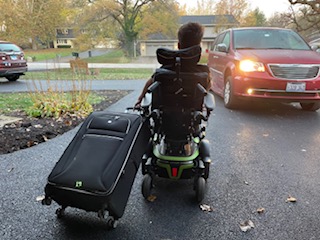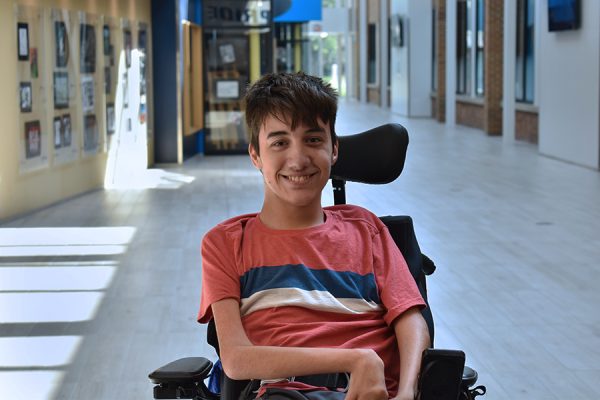Grounded – what it’s like to fly as a disabled person

The bad experiences of flying for disabled people is all too common.
The holidays are a great time to travel, especially for those who prefer to fly. Airlines can provide a quite reliable and time-efficient option.
Flying can be a great and comfortable option for many travelers, but on the flip side, it can be a struggle for others.
I have a disability called Arthrogryposis, which has caused me to become wheelchair-bound. I’m not one to usually complain, but with all of the people I know who are traveling by plane, I wanted to shine a light on the experience that’s common for disabled people.
Flying has been something in my life that is, ironically enough, important for medical-based trips. In order to get to the doctors who specialize in my disability, I have to partake in the activity that makes my life harder.
I don’t blame anyone, if I’m being honest. The airlines have strict regulations and laws, and they can’t make exceptions all that often. Though, my frustration is caused by the airlines not understanding why I need certain things, like being put closer to the front for transportation reasons or boarding early since I take longer.
But that’s really the thing that’s part of a bigger problem; disabled peoples’ voices are commonly ignored. I feel like no matter how much I explain that it’s easier to do things like I usually do (and I do understand why I’m not technically supposed to), I shouldn’t have to do things that I can’t physically do with no middle ground.
Recently, I was on a flight from Tucson to Chicago, and I was told that my mom couldn’t drive my wheelchair down the jetway, and instead they would have to call someone to push me and help me transfer to the actual seat. I was very confused, since on the original flight from Chicago I had no issues with these rules.
I never blame the individual employees who tell me (and many other disabled people) what I can and can’t do, since they’re just doing their job; they’re not making these rules. In fact, all of my bad experiences have been rectified by great employees.
It’s like a gamble when I fly, knowing that my wheelchair is tucked into a cargo bay with hundreds of other bags, becoming anxious that it could become damaged, leaving me stranded.
It’s not just the physical issues that are prevalent for people like me. It’s the humiliation of being plucked from the security line and having my wheelchair awkwardly pat-down by the officer selected to help, all while this happens in front of hundreds of travelers. Nothing’s worse than knowing I’m potentially slowing my group down because I don’t possess the ability to walk through a scanner.
I can’t even begin to imagine what it’s like to travel by myself, let alone in a large airport. Even then, once I’m through security I begin the next hardest part of flying: getting onto the airplane.
Like many people, I find the comfortability of a plane to be very minimal, and this could be solved by allowing wheelchairs onto the plane, similar to how a bus might have a spot made for them. Even if it could provide possible engineering problems, it would mean that disabled people who use mobility devices wouldn’t have to make sacrifices just to accommodate the airlines.
In fact, according to The Global Economics of Disability (TGED), disabled people have an estimated $13 trillion worth of spending power. To put that into perspective, airlines were making, on average, $29.3 billion a year pre-pandemic.
This goes to show that airlines are missing out by choosing not to make accommodations that would make the flying experience easier. It’s quite literally a win-win situation for everyone involved.
Don’t take this as me complaining just to complain. My intended goal is to create awareness to an otherwise unseen problem, and I want change. Next time you see a disabled person flying at the same time as you, stop for a second and think of how different your experience is compared to theirs.
The issues are institutional, not individual. It’s not the flight attendants’ fault that I can’t bring my wheelchair onboard. It’s the high-up systems that reject and ignore potential fixes that would make the lives of millions of people easier.

